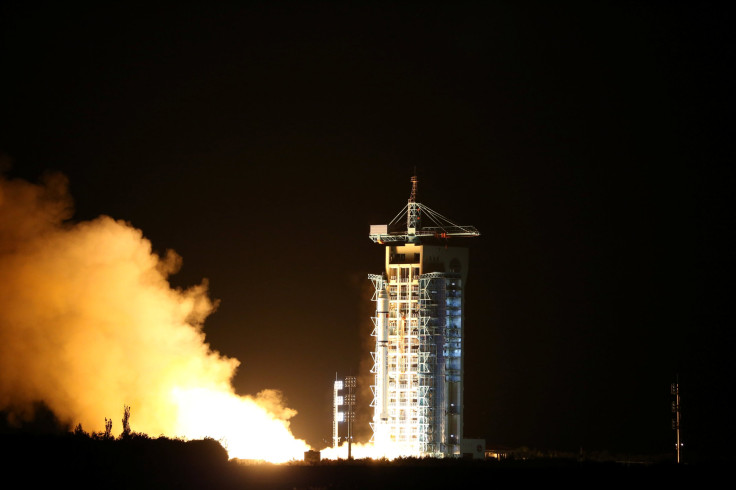China Launches World’s First ‘Hack-Proof’ Quantum Communication Satellite

China successfully launched the world’s first quantum satellite Tuesday from the Jiuquan Satellite Launch Center in the Gobi desert, Chinese state-run news agency Xinhua reported. The Quantum Experiments at Space Scale (QUESS) satellite is on a two-year mission to establish “hack-proof” communications between space and Earth.
The satellite, nicknamed “Micius,” after a Chinese philosopher and scientist from the 5th century B.C., weighs over 600 kilograms (1,323 pounds) and was launched at 1:40 a.m. local time (1:40 p.m. EDT Monday).
“The newly-launched satellite marks a transition in China’s role — from a follower in classic information technology development to one of the leaders guiding future IT achievements,” Pan Jianwei, chief scientist for the QUESS project, told Xinhua.
In quantum communication, a quantum photon cannot be separated or duplicated, thus making it impossible to intercept or crack the information it carries. The satellite will transmit unhackable keys which will help in understanding quantum entanglement. The scientists hope to test quantum key distribution between the satellite and ground stations.
Professor of electrical and computer engineering at Boston University, Alexander Sergienko, reportedly called the launch “very exciting.” “The event is indeed very exciting and does carry global importance because this would be the first such experiment,” he said.
Jianwei and his team are planning on initiating more projects which focus on quantum control and light transmission in space stations. The report said the team is also planning to test quantum communications between satellites, all-time quantum communications and the application of quantum key network.
“If China is going to send more quantum communication satellites into orbit, we can expect a global network of quantum communications to be set up around 2030,” Jianwei said.
The satellite will also help establish secure quantum communication between Beijing and Urumqi, the report said. Urumqi is the capital of the Xinjiang Uyghur Autonomous Region in northwest China, which has seen several violent incidents that the government reportedly blames on a rising Islamist insurgency.
© Copyright IBTimes 2024. All rights reserved.












